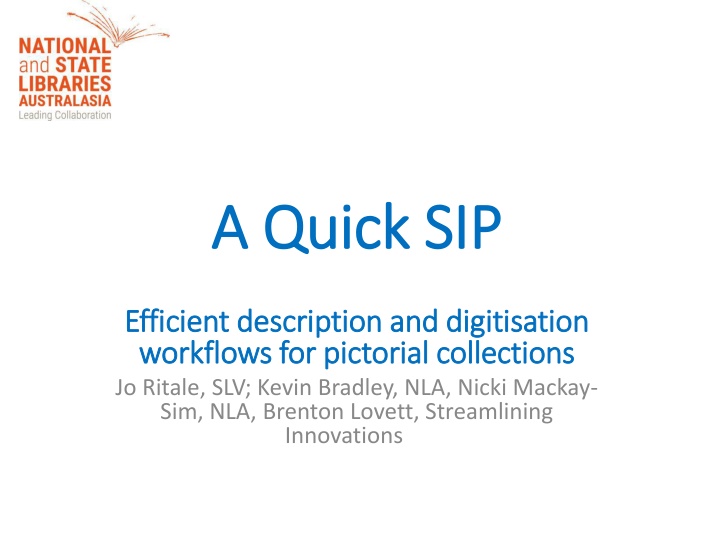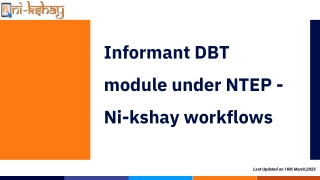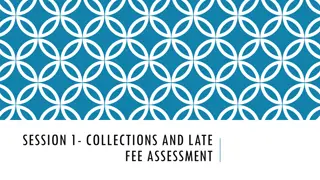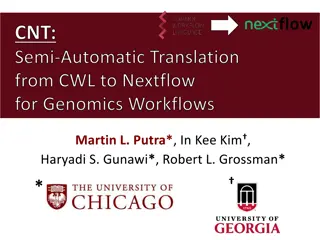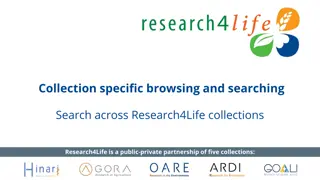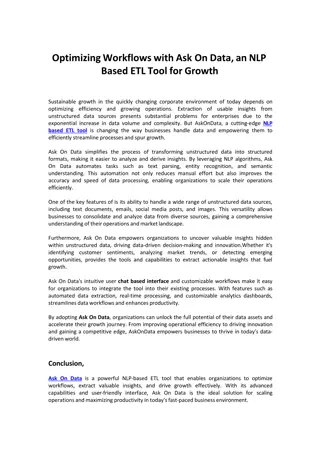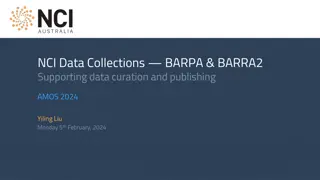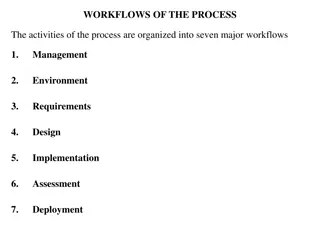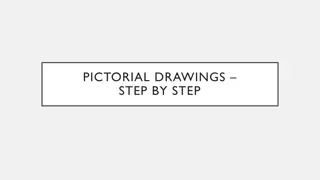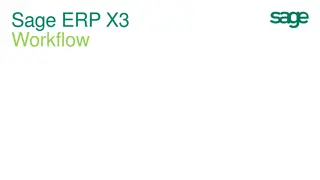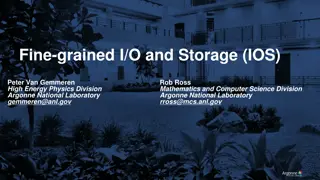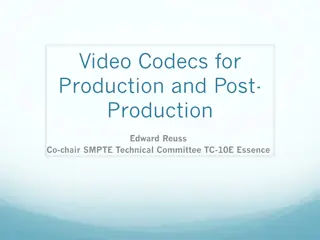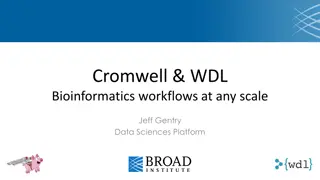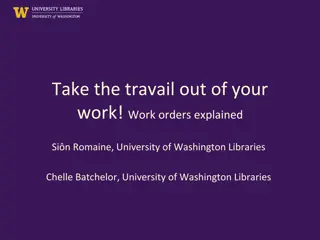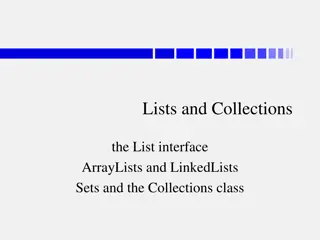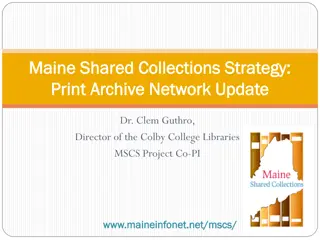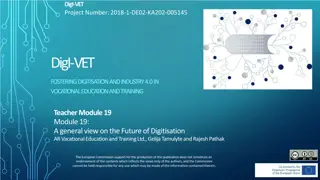Efficient Digitisation Workflows for Pictorial Collections
This report delves into the efficient digitisation workflows for pictorial collections conducted by Jo Ritale, Kevin Bradley, Nicki Mackay-Sim, and Brenton Lovett. It covers the analysis of large pictures collection surveys, development tasks, and refinement strategies. The report also discusses the comparison of digitisation projects across NSLA libraries, highlighting varying results in activities, speed, and throughput.
Download Presentation

Please find below an Image/Link to download the presentation.
The content on the website is provided AS IS for your information and personal use only. It may not be sold, licensed, or shared on other websites without obtaining consent from the author.If you encounter any issues during the download, it is possible that the publisher has removed the file from their server.
You are allowed to download the files provided on this website for personal or commercial use, subject to the condition that they are used lawfully. All files are the property of their respective owners.
The content on the website is provided AS IS for your information and personal use only. It may not be sold, licensed, or shared on other websites without obtaining consent from the author.
E N D
Presentation Transcript
A Quick SIP A Quick SIP Efficient description and Efficient description and digitisation workflows for pictorial collections workflows for pictorial collections Jo Ritale, SLV; Kevin Bradley, NLA, Nicki Mackay- Sim, NLA, Brenton Lovett, Streamlining Innovations digitisation
A Quick SIP: the session agenda Background Approach Workflow Findings Recommendations Discussion and next steps
Pictures Digitisation and Description Project The Workflow Analysis Report
Large Pictures Collection Survey Conducted in August and September 2012 Very comprehensive covering all aspects of Pictures collection management Staffing; structure; collection size & formats; acquisition; accessioning; description; digitisation and delivery Consistent metrics difficult to achieve P 4
Large Pictures Collection Survey Development of WP2 Analysing Pictures Digitisation and Description across NSLA Libraries One of the first tasks was for Brenton to interrogate the results of survey questions related to description and digitization P 5
How we came to commission this report
Approach Large Pictorial Collections Survey Pictures Digitisation Survey Process Modelling Site Visits
The Survey Refinement NSLA libraries digitisation projects comparison varied formats, varied description, varied cataloguing levels, varied preservation requirements to analyse better the varying results chiefly in terms of activities,speed and throughput [pull apart the work streams for Rego, Preservation, Cataloguing, Digitisation, Finalisation]
The Libraries: NLA, SLV, SLSA, LINC Tasmania normal - negatives, slides, prints, albums not normal panorama collection (Enemark nitrates) preservation intensive and large - (Fairfax, Rennie Ellis and Mark Strizic)
The Survey Questions Order Library, Year of digitisation, Work order, Source format, No. of physical images Registration No. of images requiring clearances (rights/cultural), Registration activities, Collection Team Registration hours -Preservation No of images requiring Pres treatment, Preservation activities, Preservation team hours Cataloguing No. of images already catalogued, medata std, cataloguing level, cataloguing activities, cataloguing team hours Finalisation finalisation activities, Collection Team finalisation hours
Approach Large Pictorial Collections Survey Pictures Digitisation Survey Process Modelling Site Visits
Key Observations from the 2012 Survey We all have similar approaches There is no single institution who is the leader in the field Throughput depends on multiple interdependent factors There is a lack of end-to-end process visibility, process metrics and process automation We all are equally good, we are equally bad! The model limits us.
Workflow Digitise Pictures Registration Preservation Cataloguing Digitisation Finalisation Planning Prioritisation Approval Payment Rehousing Conservation Metadata Standards Description Level Method Format Resolution Equipment Notification Discovery
Findings Activities Automation Resourcing Pictures Digitisation and Description Metrics Visibility
Recommendations Continual Process Improvement Process Metrics Business Alignment Pictures Digitisation and Description Standard Operating Procedures Strategic Sourcing
Next Steps Continual Process Improvement - Deming Cycle Plan Recommendations Act Do Check
How the report informs us If we want to increase throughput or if we want to increase process efficiency, is there a trade off?
How the report can help improve workflow
What we can do; What can we do?
Discussion Comments Nomenclature Is the terminology OK? Inappropriate? Is it a barrier Structure Is the model representative of work area Relevance Can others see its use and relevance What can we do to make it more relevant/useful? Suggestions on what each individual institution can do Specific work that individual institutions might do List of things we wish someone would do (non binding) Discussion on collaborative work What we might want to do together
